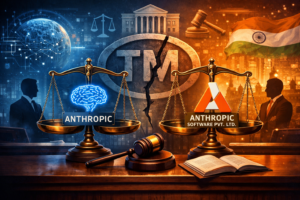The rapid ascent of artificial intelligence (AI) is not only transforming industries but is also reshaping the intellectual property landscape. Recent data reveals that more than 86,000 AI-related patents have been filed globally between 2010 and 2025, marking a dramatic surge in innovation and investment in the field. These AI patents now account for over 25% of all technology-related patent filings during the same period, underscoring AI’s central role in shaping the future of technology.
Accelerated Growth in AI Innovation
The number of AI patent filings has seen exponential growth, especially in the last five years, driven by breakthroughs in machine learning, natural language processing, computer vision, and generative AI. The surge reflects both the maturity of AI research and its widespread commercial adoption across industries ranging from healthcare and finance to automotive and entertainment.
Leading patent offices, including the United States Patent and Trademark Office (USPTO), the European Patent Office (EPO), and the China National Intellectual Property Administration (CNIPA), have all reported significant increases in AI-related submissions. China and the United States are at the forefront of this trend, with companies like IBM, Microsoft, Google, Baidu, and Alibaba leading the charge in filing AI innovations.
Key Areas of AI Patent Activity
The 86,000+ patents span a wide range of applications, including:
Autonomous vehicles and driver-assistance systems
AI-powered healthcare diagnostics and drug discovery tools
Smart assistants and voice recognition platforms
AI in cybersecurity, including threat detection and automated response
The expansion of AI into nearly every facet of modern life has fueled demand for proprietary protection, as businesses race to secure their intellectual property in a competitive and fast-moving market.
Implications for the Tech Industry
The fact that more than a quarter of all tech patents in the past 15 years are AI-related signals a major paradigm shift. According to intellectual property analysts, this shift highlights both the strategic importance of AI and the increasing complexity of patent landscapes, which may lead to a rise in patent disputes and licensing negotiations in the near future.
Legal experts warn that the rush to patent AI innovations also raises questions about patent quality, the scope of protection, and ethical considerations, particularly when it comes to inventions generated by AI itself.
The Road Ahead
With ongoing advancements in generative AI, robotics, and quantum computing, the number of AI-related patent filings is expected to keep climbing. Governments and regulatory bodies are also paying closer attention to how AI patents are evaluated, ensuring that innovation is balanced with responsibility and legal clarity.
Accelerated Growth in AI Innovation
The number of AI patent filings has seen exponential growth, especially in the last five years, driven by breakthroughs in machine learning, natural language processing, computer vision, and generative AI. The surge reflects both the maturity of AI research and its widespread commercial adoption across industries ranging from healthcare and finance to automotive and entertainment.
Leading patent offices, including the United States Patent and Trademark Office (USPTO), the European Patent Office (EPO), and the China National Intellectual Property Administration (CNIPA), have all reported significant increases in AI-related submissions. China and the United States are at the forefront of this trend, with companies like IBM, Microsoft, Google, Baidu, and Alibaba leading the charge in filing AI innovations.
Key Areas of AI Patent Activity
The 86,000+ patents span a wide range of applications, including:
Autonomous vehicles and driver-assistance systems
AI-powered healthcare diagnostics and drug discovery tools
Smart assistants and voice recognition platforms
AI in cybersecurity, including threat detection and automated response
The expansion of AI into nearly every facet of modern life has fueled demand for proprietary protection, as businesses race to secure their intellectual property in a competitive and fast-moving market.
Implications for the Tech Industry
The fact that more than a quarter of all tech patents in the past 15 years are AI-related signals a major paradigm shift. According to intellectual property analysts, this shift highlights both the strategic importance of AI and the increasing complexity of patent landscapes, which may lead to a rise in patent disputes and licensing negotiations in the near future.
Legal experts warn that the rush to patent AI innovations also raises questions about patent quality, the scope of protection, and ethical considerations, particularly when it comes to inventions generated by AI itself.
The Road Ahead
With ongoing advancements in generative AI, robotics, and quantum computing, the number of AI-related patent filings is expected to keep climbing. Governments and regulatory bodies are also paying closer attention to how AI patents are evaluated, ensuring that innovation is balanced with responsibility and legal clarity.




